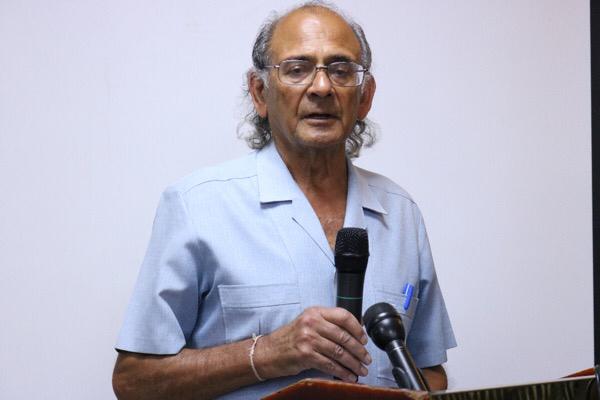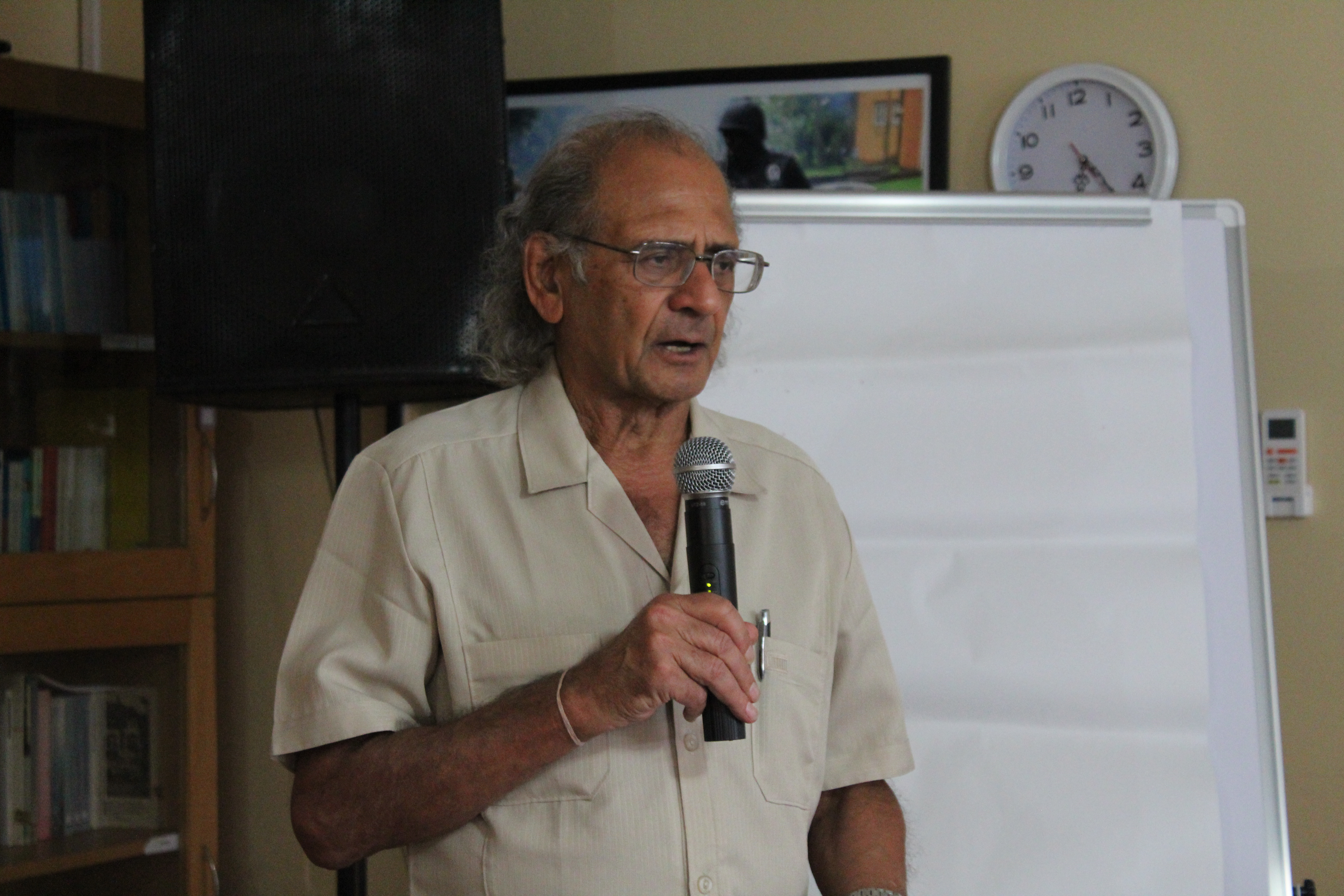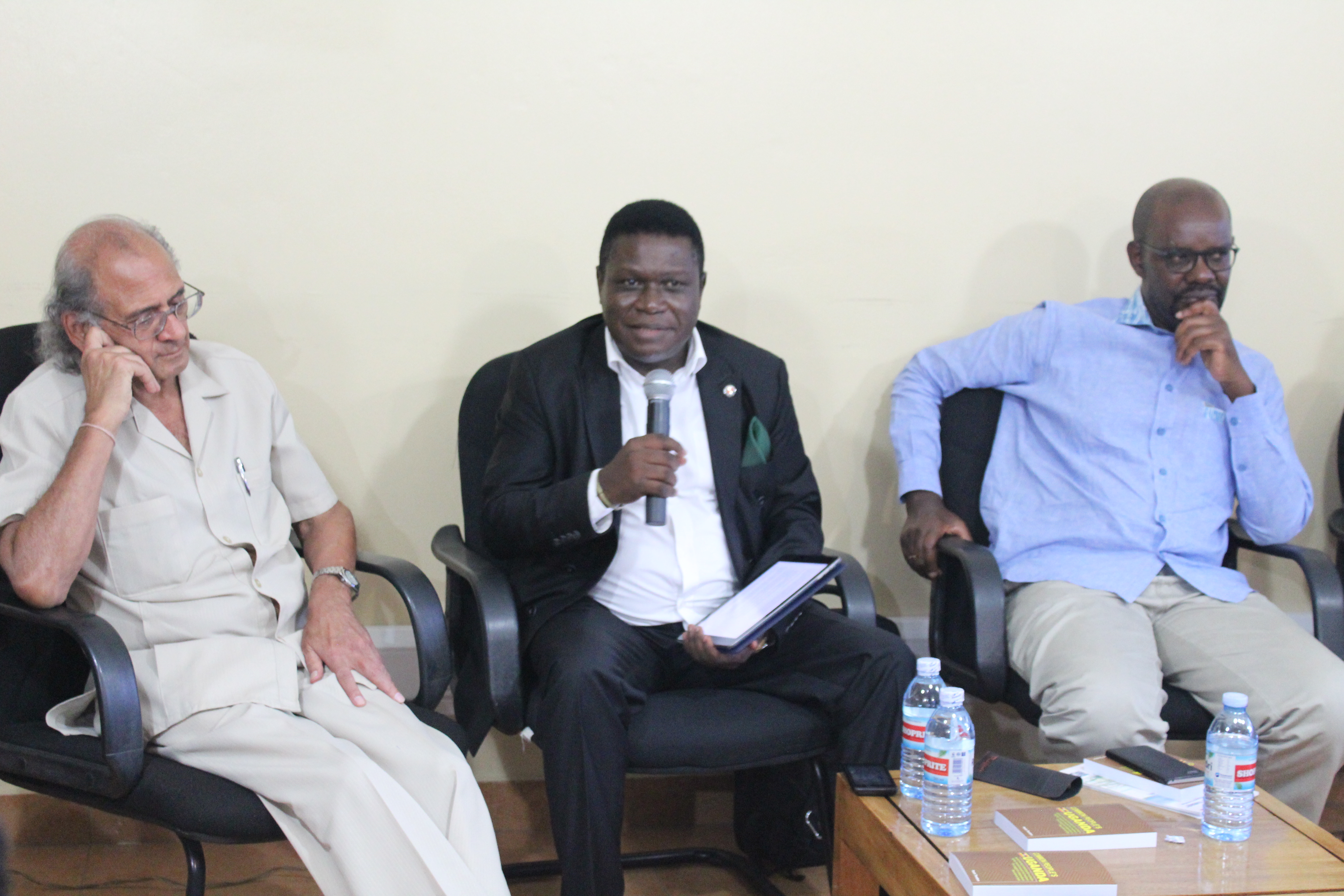The afternoon of Good Friday April 14, 2017 found us at the home of veteran Ugandan politician Professor Edward Rugumayo in the pristine Boma neighbourhood that overlooks Fort Portal town. Rugumayo had been the Chairman of the National Consultative Council (NCC), the legislative body of the Uganda National Liberation Front (UNLF) government that succeeded the military dictatorship of Field Marshall Idi Amin in 1979.
In our company was Ugandan journalist Andrew Mwenda who, to the old professor’s amusement, sat across from us recounting the events that led to the ouster of President Yusuf Lule in June 1979. Mwenda recalled, almost from perfect memory, the pronouncement of the NCC declaring Yusuf Lule had been overthrown.
A new book by Rugumayo’s contemporary, Professor Yash Tandon, sheds light on the events leading up to the ouster of Lule as well as the ideological contestations that shaped the post-Idi Amin period in Uganda and the role the “Gang of Four”—that included Omwony Ojok, Dani Wadada Nabudere, and Professors Rugumayo and Tandon.
Tandon barely stops short of calling the NRA/M’s revolution a still birth badly in need of rebooting because of the movement’s failure to transition from rebel movement into a vanguard party. Herein, argues Tandon, lies Uganda’s current leadership crisis which he traces back to the factionalism within Milton Obote’s Uganda People’s Congress (UPC) party that came to life at its controversial 1964 party delegates conference in Gulu.
The Author, Prof. Yash Tandon, thinks Uganda’s current crisis can be explained by the failure to build a vanguard party and local ownership of the means of production./Photo by FES
Titled A Common People’s Uganda, which sounds like a play on the UPC’s famous Common Man’s Charter–whose content Tandon largely shaped–the book was in May launched in Kampala.
On May 10, [2019] I had the opportunity to engage Professor Tandon and a panel consisting DP president Norbert Mao, academic Dr. Golooba Mutebi and Perry Aritua, Executive Director of the Women Democracy Network at an event organized by the German political foundation, Friedrich Ebert Stiftung in Kampala.
Below I have reproduced part one of our almost two-and-a-half-hour conversation. I have edited out parts of the conversation for easy reading and context.
Kwezi: The backdrop to this book are the events of 1964 Uganda People’s Congress party delegates conference that takes place in Gulu and [then UPC Secretary General] John Kakonge’s expulsion from the UPC. Is it true, like professor Tandon suggests, Uganda’s current crisis could have been brewed in your own backyard of Gulu?
Mao: It is true that countries face watershed moments and one small decision can cast a long shadow over many years. In reading the book, I could see all the land mines we could have avoided, and it is all about who has power—the leaders or the people. It is true, indeed, the Gulu conference was a turning point. It marked a tendency for the then government led by Dr. Obote becoming more fascist, intolerant of contrary views and that is why many of the intellectual luminaries of UPC were labelled fifth columnists. It also marked a tendency for clique-ism.
DP President, who also served as Chairman LCV of Gulu, Norbert Mao reflects on the events of the 1964 UPC delegates conference in Gulu./Photo by FES
You talk about Kyankwanzi…there are historical precedents.
The shadow of the events narrated in this book is that people started becoming survivors. After 1964, the trade unions became increasingly weaker, [the students’ union] NUSU was co-opted; that process of co-optation started alienating the people, and UPC on losing mass support started leaning more on the military and the GSU.
Kwezi: Veteran Kenyan journalist Philip Ochieng in his book I Accuse the Press while comparing socialism in Uganda and Tanzania says the reason why socialism failed in Uganda is because no “single socialist civilian existed to implement the programme and not a single socialist soldier to defend it.” Do you think there’s wisdom in such a statement or was the socialist experiment in Uganda bound to fail any way.
Dr. Golooba Mutebi: I am not aware that socialism succeeded in Tanzania…
Kwezi: …or the extent to which it succeeded?
Dr. Golooba Mutebi: Besides what we all say about how Nyerere was able to unite Tanzanians into feeling as one people by de-emphasizing ethnic differences, and creating a common language, I think on other accounts I am not sure I would claim that socialism succeeded in Tanzania. I think the difference between Uganda and Tanzania—if we talk of success in terms of long-term stability—is that Nyerere had a political party which he dominated, and also a political party that had the support of the largest majority of Tanzanians.
Nyerere’s authority was unquestioned. What Norbert [Mao] was describing here is that Obote never quite succeeded in imposing his authority on UPC or any member of UPC…so UPC ended up factionalized, and because it was factionalized, Obote had to find a way of removing those who were considered to be the enemies within and of course that intensified the crisis for him.
Now, Nyerere’s authority was never questioned until he stepped down. There lay Nyerere’s success. And the fact that Nyerere was able also within CCM to mentor and nurture young leaders who as you see CCM is still a very strong party–CCM’s changes of leadership are very orderly and organized. So, that was also a great success on Nyerere’s part and we are yet to see that replicated anywhere in East Africa or even beyond.
I think we have been saying for the last 30 or 20 years that the NRM will implode rather spectacularly once Museveni is out of the way because I think it is not farfetched to ask whether the NRM as a political organization actually exists.
Going back to UPC, today I would argue that the UPC exists in ways that the NRM does not. If you took Museveni out of the equation, UPC is likely to be a stronger party than the NRM and I will tell you why.
I think the UPC has deeper roots than the NRM does. And if we go back to what Norbert said which was equally valid, I think it enjoins us to actually look at how the UPC has survived the way it has.
Back to your question, I think the comparative success and failure between Nyerere and Obote lay in the authority they had over the political organizations they led, the extent to which they nurtured leadership and created a lasting ideology and the extent to which they were able to hold the party together. Obote failed, I think Nyerere succeeded.
Kwezi: Professor Tandon, in the book you mention quite often Uganda’s “primary” and “secondary” contradictions. It is a debate we come across quite often discussing contemporary politics in Uganda. Could you please expound on that?
Prof. Tandon: This is indeed the most important strategic question. Why strategic? Because you cannot have a strategy unless you know your enemy. It disturbs me that 57 years down the road we have not been able to identify who the enemy is. DP says UPC is the enemy, UPC says, no, it is DP. We have not understood who the enemy is. Nkrumah did. He said we received political independence but we are still neocolonies…
I have written in the book that the King of Bunyoro and Kabaka of Buganda were fighting amongst each other for years, decades… and then the British came to try and colonise Uganda. They still decided to come together and join forces. Our forefathers recognized who the principle enemy is.
Today? None of the parties know who the principle enemy is. They bicker among them selves fighting for power. What power? State power? Its not in your hands anyway… you can be president tomorrow but I bet you that stage doesn’t belong to you. I have traversed this road since 1964, and back then, when he was in Dar es Salaam as a student, Museveni did understand the principle enemy. I don’t know whether Bobi [Wine] understands, he is too young. And maybe he will understand who the real enemy is. […]
Kwezi: Another subject that the professor dedicates quite a bit of space in the book are the Dar es Salaam debates. In there we see intense debates between the “Gang of Four” comprising Omwony Ojok, Dani Nabudere, Professor Rugumayo and Professor Tandon, and other Ugandan exiles. Do we see any of that in Uganda’s academia today?
We seem to have a crisis right now, which is a perfect moment for the political and social sciences departments at the university to contribute their voice to this debate. Yet we seem to have lost that moment.
Dr. Golooba Mutebi: You have got me on the spot.
Laughter
I think a lot has changed in the way our universities function. The intellectual rigour that used to be there had already started dying by the time Norbert [Mao] and I went to the universities in the early 1990s. Today, sadly, if you held an intellectual discussion at the university, [and] you have not invited very prominent people, you will hardly get an audience. Certainly not an audience comprising academics. You will get a lot of undergraduates standing up to satisfy their curiosity as to who is there.
There are so many reasons for that and I can assure you that is not a preserve of Makerere. I have seen it in Rwanda, in Nairobi and Dar es Salaam. Something has happened to universities in Africa and I think a lot of that has to do with the degrading of the capacity of academics to actually concentrate on their work as academics–which is to produce […] and extend the boundaries of knowledge. Academics these days are part-time academic[ians who] spend a lot of the time doing other things.
So that explains why those debates are not there. And in many cases, we academics have a tendency to turn ourselves into opposers of sitting governments that it is almost a knee-jerk thing; everyone wants to oppose government… if you support government then somehow you are a traitor or a sell-out.
A lot of people still associate me with Makerere but I left 11 years ago and that is because I realized that I could never be the academic I would have been if Makerere had been what it was before we went there.
So, those debates are no longer there. Even [when you] look at our parliament, why is it that there are no debates in parliament that will hold the public interested in what is going on there?
L-R: Prof. Tandon, Norbert Mao listen to Dr. Golooba Mutebi./Photo by FES
This takes me back to something you said which I would like to contest a little bit.
You said everything that Museveni criticized Obote for, he has done worse. I don’t agree and I will tell you why.
I think Uganda is less divided now than it was when I was a child. Let me give you a simple indicator. There is a time in this country when DP was a Catholics party and UPC belonged to Protestants, today I don’t think we can say the same things.
[Turns to Norbert Mao] Is your party still a party of Catholics?
Applause
Which group of Ugandans does the NRM belong to?
So, I think that at that level where religion was such a big factor in politics, we have gone a bit beyond that.
Now, President Museveni has a lot of tactics for recruiting and maintaining political support, and those tactics are damaging in the long term, but at the same time Museveni has brought so many Ugandans into leadership. There are thousands of Ugandans today who are leaders of all different kinds—I think that is a good thing. It is not perfect, but it is a good thing.
[For example,] LC1 chairpersons; you do not look for them when you don’t need them but you never get to know how important they are until you need them, and then you realize there is something quite positive about the LC system.
So, I think it is okay to criticize Museveni, and there are many things you can criticize him for, but I think he has moved us a step from where we were when I was a child. we are still divided, but not as badly as we were then.
Editor’s note: the article was earlier published on the authors blog in May 2019, and has been slightly edited to add more detail.












